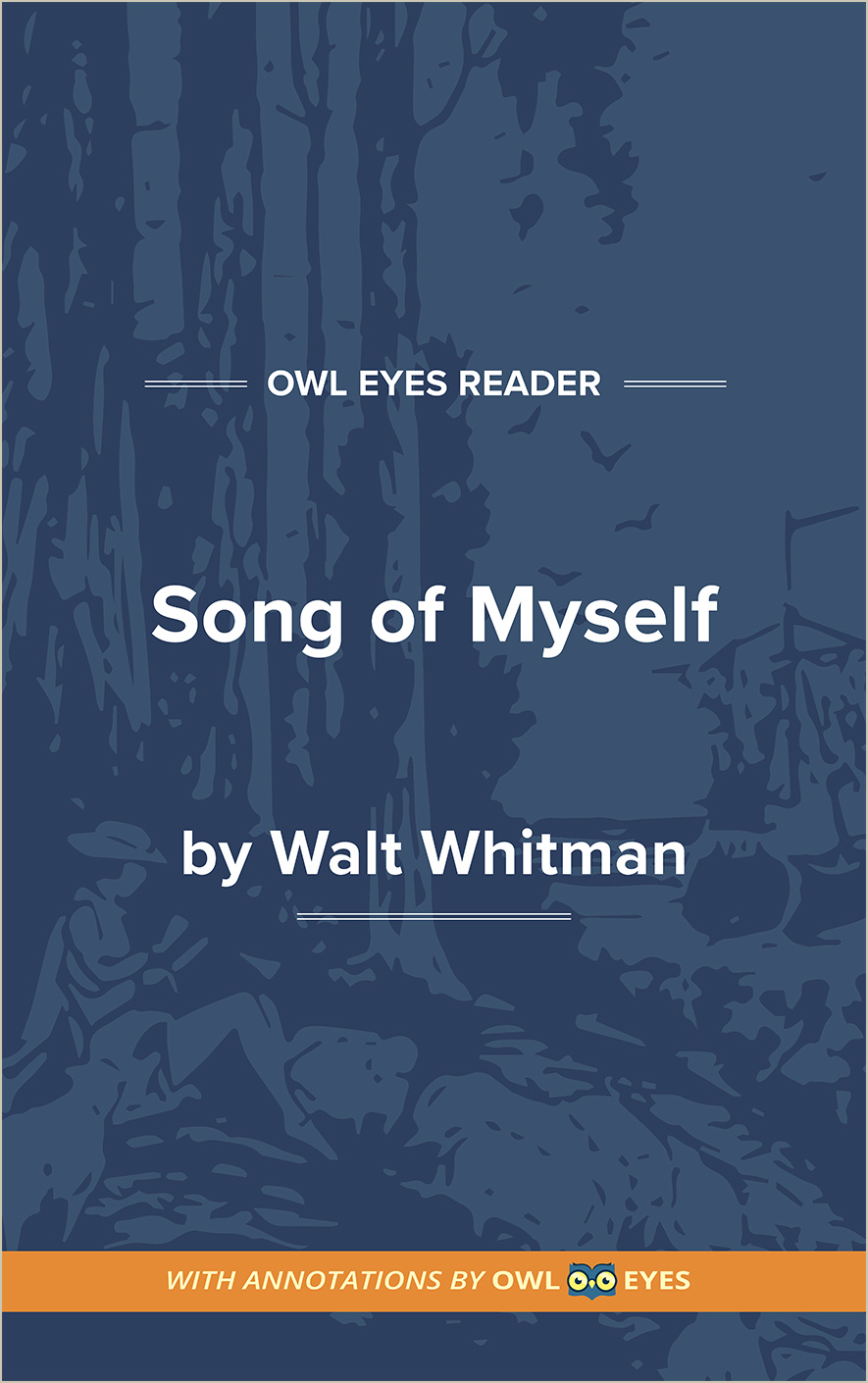Study Guide
Analysis Pages
Summary
“Song of Myself” was first published as the untitled opening poem of Leaves of Grass in 1855. The author’s name does not appear on the first edition’s title page, but it is mentioned in the poem: “Walt Whitman, an American, one of the roughs, a kosmos.” This characterization sums up the subject of identity in “Song of Myself.” Whitman presents himself as an American working man and as a mystical figure at one with the universe.
Although the poem identifies “myself” simply as Walt Whitman, the identity of the speaker is also mythic. Instead of trying to say how unique his feelings and thoughts are, Whitman emphasizes his ordinariness. His ordinariness is in fact so comprehensive that he absorbs each American, past, present, and future. This comprehensive awareness makes the speaker of the poem greater than himself, but it is a greatness and uniqueness that is, he emphasizes, accessible to all.
The idea behind “Song of Myself” is that individual identity is temporary but transcendent. The dominant tone of “Song of Myself” is joyous and mystical. The cycle of life renews itself constantly, and so conquers death. If each person absorbs this knowledge, each may feel kinship with all life, and so gain a sense of victory over mortality.
“Song of Myself” includes many modulations of tone as it moves toward its climax. To work out the theme of endless renewal, the fifty-two sections of the poem move back and forth between general and specific, between description and emotion, between the...
(The entire page is 389 words.)
Owl Eyes subscribers get unlimited access to our expert annotations, analyses, and study guides on your favorite texts. Master the classics for less than $5/month!

